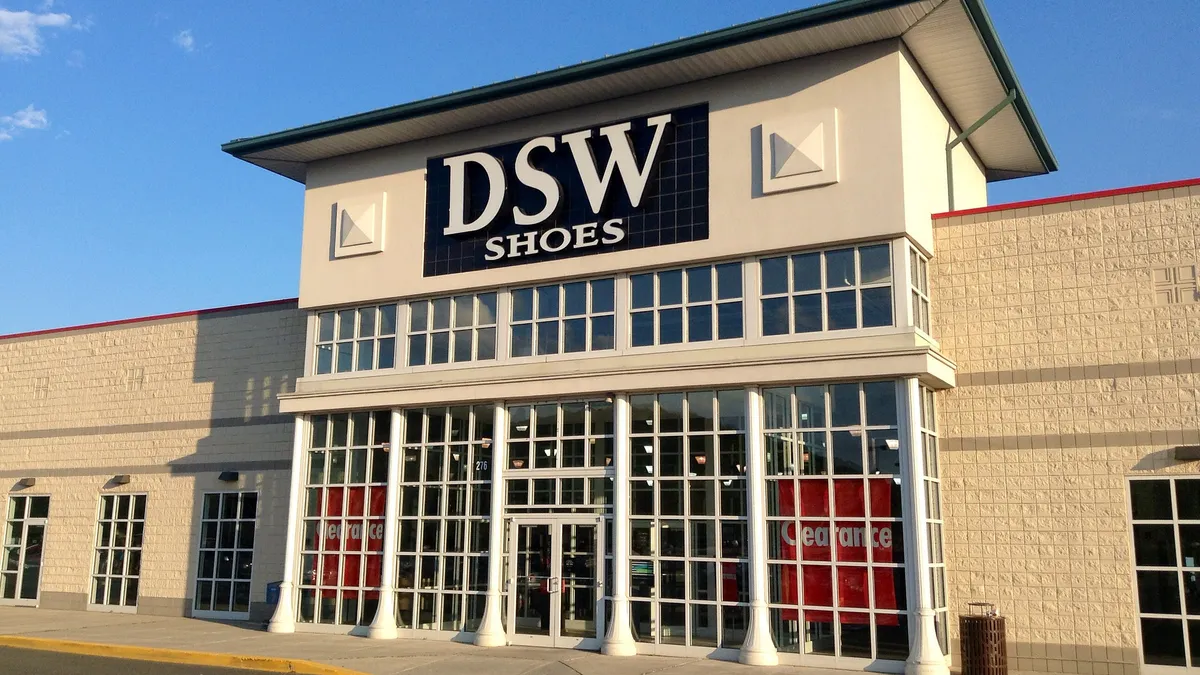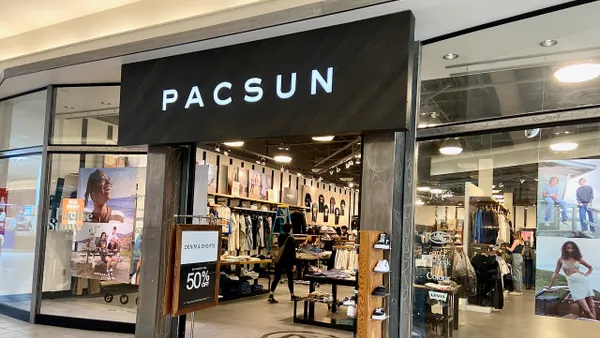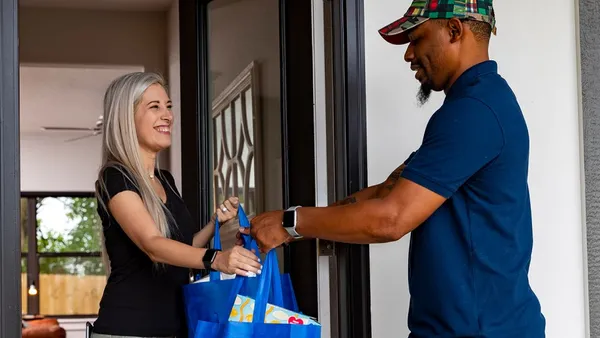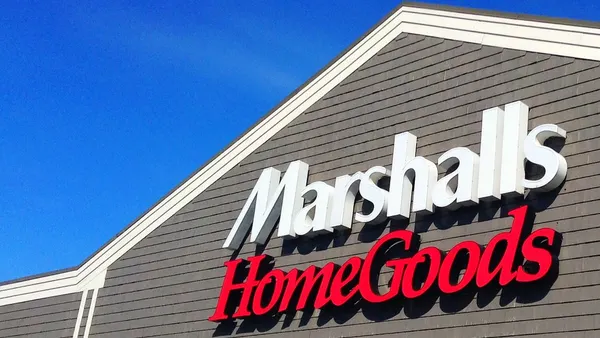Dive Brief:
- Designer Brands is planning to consolidate its business with drastically fewer vendors in the future after the company delayed payments and canceled orders with vendors due store closures necessitated by the coronavirus pandemic, CEO Roger Rawlins said on the company's Thursday earnings call. "We are actively negotiating with vendors to strengthen relationships as we rationalize our brand portfolio in order to focus our business on the largest footwear brands and our own exclusive brands," Rawlins said.
- Designer Brands worked with 580 vendors in 2019, according to its most recent annual report. It is now looking to focus on the top 50 to better prioritize inventory spending and improve positioning with the remaining vendors. "We're going to invest our inventory dollars, meaning owned inventory, into these top 50-ish brands that are the ones that the consumer demands," Rawlins said, without offering a target number of total vendors post-rationalization.
- The company contacted vendors and landlords immediately upon closing stores to let them know payments would be delayed and the rationalization coincides with the negotiations regarding payments now that roughly 90% of its DSW stores are open again. "We've reached alignment with nearly all of our major vendors and landlords on past due amounts and have extended go-forward payment terms," Rawlins said.;
Dive Insight:
Simplification is a watchword of supply chains in the post-lockdown business, according to executives from businesses across sectors. Restaurants are simplifying menus to ease procurement and execution amid new safety standards. CPG companies are cutting SKUs to reduce raw material needs and get essential products on store shelves faster. And now nonessential retailer Designer Brands is making similar moves to bolster key vendor relationships and ensure price competition in the uncertain days ahead.
"Given the amount of growth we're going to have with the top 50 vendors ... it was a good time to have that [discussion] with them and it's worked out very, very favorably there," CFO Jared Poff said. Rawlins emphasized that consolidating DSW's buying within fewer vendors will allow closer relationships with the "top 50" and possibly bring down prices for consumers since Designer Brands could be buying more product from each of the remaining suppliers.
Rawlins also described a closer tie between DSW's website and its retail stores in the behavior of consumers since the start of the pandemic. Even though roughly 90% of DSW stores are now open, social distancing requirements lessen store capacity and the retailer has observed consumers engaging in more "web-rooming" — the practice of browsing online before heading to a physical store.
"I think this is the data point that through [COVID-19] has really stuck out for us ... 85% of our sales as an organization are digitally demanded," said Rawlins. " When I say 85%, 20% to 25% of the time they're on the website, they decide to click to buy at that moment."
The remainder of that 85% make a purchase in-store after researching online. The retailer's conclusion is its product assortment should better match online search terms, which in part lead to the strategy to consolidate vendors around those terms.















